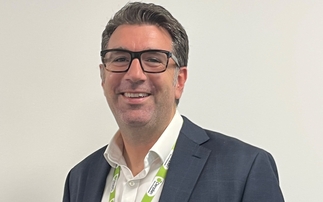With the UK in the midst of financial meltdown, Jill Davies explores why a slowing economy could accelerate the growth of health cash plans
As we head towards a recession with the cost of living rising and house prices falling, it would be all too easy to allow pessimism to hit the health insurance market. But the opportunities for relevant and affordable healthcare are still there - the challenge is in identifying them and developing their potential.
Proactive employers and intermediaries are now increasingly taking a wider view of health insurance - and the cost implications. No one can foresee how long the credit crunch will last and companies, understandably concerned about their business bottom line and cautious of unnecessarily adding to inflationary and budget pressures, will be wary of giving staff sizeable pay increases.
Equally, they will realise the importance of retaining talented staff during difficult times to ensure they are in the best position to ride out the economic storm and to emerge fit for purpose once it has passed. Intermediaries, meanwhile, must find a product that suits their clients' budgets and expectations, being cost-effective on one hand and highly valued by employees on the other.
Traditionally, health cash plans (HCPs) have flourished during difficult times and this trend is already being reflected with the first significant growth in the market since 2000. The number of cash plan contributors in the UK grew by more than 3% during 2007, according to industry analysts Laing and Buisson's Health and Care Cover UK Market Report 2008, and by the end of the year, nearly five million people were covered by cash plans.
Behind HCP growth
Behind some of that growth was a rise in employer-paid plans, which increased by more than a quarter. So what has inspired this growth and what makes HCP such a strong contender as a health insurance product when the economy is less than buoyant?
Cost-effectiveness is a prime factor for companies looking to extend their employee benefits package and for intermediaries looking to expand their portfolio with affordable products.
While introducing healthcare cover for staff may be an immediate cost, many cash plans start at just £1 a week for each employee, which means that when businesses are looking to rein in expenditure, HCPs could offer a low cost alternative to private medical insurance (PMI).
As the economy falters and with some PMI premiums on the rise, many employers may think again about the merits of offering PMI to just a handful of management staff particularly when introducing a cash plan for the whole workforce could save money. Meanwhile, industry experts have warned that a recession could prompt a spike in PMI claims.
They point to events during the recession of the early 90s when there was a sharp rise in claims on individual and corporate PMI policies. These were attributed to fears of losing healthcare cover due to redundancy or individuals not being able to afford to cover themselves. In the current economic climate, companies with large numbers of employees that are looking to reduce costs but are fearful of losing healthcare cover for staff, are increasingly opting for a cash plan over PMI cover, a move that could in turn generate an attractive commission for the intermediary selling the plan.
HCP can also complement PMI as certain cash plan benefits can be used to help pay PMI excesses.
So, taking into account all the factors mentioned above, the value of a cash plan to all parties starts to become clear. Intermediaries make their commission from selling the plan, companies are seen to be demonstrating that they care about staff wellbeing and morale by introducing the plan as a benefit, and employees are given a helping hand with healthcare costs.
Everyday usage
Because the cash plan offers a range of everyday healthcare benefits, policyholders do not need to be unwell before they can start using their healthcare cover, another aspect which further underlines its appeal.
Core benefits such as dental cover are much in demand due to an ongoing rise in treatment costs and as a result of changes in the NHS dental contract that are reportedly impacting on the number of dentists leaving the NHS and moving to exclusively private practice.
Not having to find the money for dental or optical check-ups can be a big plus during difficult financial times. Voluntary policyholders are also likely to benefit from being able to budget for and spread the cost of their healthcare via monthly premiums.
Cash plans have continued to develop over the years to both anticipate and match changing healthcare needs. Benefits offered can now range from occupational health and wellbeing benefits through to access to MRI and CT scanning facilities. GP telephone consultation lines and confidential counselling and advice lines are also available on some cash plans, all of which enhance the perceived value of a plan for employers and policyholders, who can feel they are getting more for their money.
Preventing the problem
A cash plan with benefits such as counselling services and physiotherapy can help employers reduce sickness absence and lower their risk of stress and musculoskeletal litigation. And with sickness absence costing the UK economy £13.2bn last year, its impact could potentially have an even worse effect on a company's financial position during an economic slowdown.
The savings made on absence alone could result in a significant increase on bottom line profitability and would therefore more than justify the costs of the plan.
A Westfield Health survey looked at 22 of the most common regular household outgoings and spending on Westfield Health cash plans was less likely to be cut than essentials such as home insurance, utility bills and food. Only mortgage or rent payments were considered more important.
The survey also found that 88% of corporate customers intended to maintain employee benefits to protect morale, despite the fact that more than 50% were implementing cost-cutting measures in other areas.
In an endorsement of employer-paid healthcare benefits, the vast majority of companies questioned said they were not planning reductions to their current health-related benefits, and a few were even proposing to increase their spend on health cash plans.
This echoes findings earlier this year from management consultant Hymans Robertson, which revealed that while one in three employees feared a cut in their benefits package in 2008, 95% of employers had no such agenda and nearly half were actually considering enhancing the package on offer.
The message to intermediaries and businesses is clear - while the health of the economy may be wilting, cash plans look set to continue to bloom.
Jill Davies is chief executive of Westfield Health.











